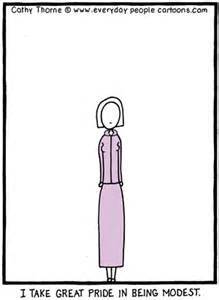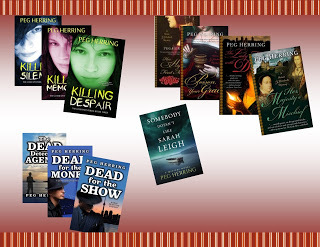Peg Herring's Blog, page 18
November 26, 2015
30 Days of Christmas-DAY TWO
Today I'm challenging you. Tell me: Is your pet on Santa's Naughty List or his Nice list?This is Burt. He's on the Nice List because he's so patient with his pet girl.


Published on November 26, 2015 04:00
November 25, 2015
30 Days of Christmas DAY ONE
 We'll start with a giveaway--How's that for getting in the Christmas spirit?
We'll start with a giveaway--How's that for getting in the Christmas spirit?I have 2 copies of HER MAJESTY'S MISCHIEF in large print to give away. If you have someone on your Christmas list who needs/prefers large print, here's a chance to get them Book #4 of the Simon & Elizabeth series.
What do you do?If you're signed up for my newsletter, just say so in the comments below and I'll put your name in the drawing for one of the books. If you're not signed up for my newsletter, you can sign up below. (You might want to know that I only send a newsletter when I have a new book coming out, and I'll never give your name/email to anyone else.)If your name is drawn I'll contact you and you can decide if you want the book mailed to you or directly to the person on your gift list (personalized, of course!. Once you're signed up, you'll also be eligible for freebies I plan to send out after Christmas, so you can get a print book or try out that new e-reader you're going to get from Santa!
Published on November 25, 2015 10:14
November 23, 2015
Coming Up: 30 Days of Christmas
 Starting November 25, you'll want to check this blog every day. I'm planning 30 Days of Christmas, a countdown to the holiday that is sure to make you merry. (Maggie and I are collaborating)
Starting November 25, you'll want to check this blog every day. I'm planning 30 Days of Christmas, a countdown to the holiday that is sure to make you merry. (Maggie and I are collaborating)Giveaways
Pet Stories
Contests
Character-Written Posts
Author Spotlights
...and anything else we can think of!
So starting Wednesday, Nov. 25th, check here every day for something to warm your heart and boost your Christmas spirit!
Published on November 23, 2015 05:38
November 16, 2015
Deflating My Ego
 I opened this blog site just now and saw that a bunch of people logged in yesterday.
I opened this blog site just now and saw that a bunch of people logged in yesterday.Wow! I must have said something really wise or interesting.
No, not really. And what I did say was last Monday. Why was it so intriguing now, seven days later?
Maybe a bunch of people heard of me in the last few days?
Nope. I spent the weekend at home, and I didn't post much except my usual smart aleck stuff on FB.
So why all these looks at my site?
After some thought, I figured it out. (Sigh.) It was me. I made changes last night, turning my summer background into a more fall/winter one. Every time I looked at it so see if I liked what I'd done, the computer counted it as a visit.
I guess it's true what they say. You create your own excitement.
Published on November 16, 2015 04:25
November 9, 2015
What It's Like in a Writer's Head--Especially on Mondays
Okay, today I have to finish the chapter I started yesterday--

But there's that blogger who wants a guest post by Wednesday--

Oh, and the editor sent a chapter for me to okay. I should get on that soon.

But that contest I'm judging has a deadline for me to return my ratings. When was that?

I wish I had time to write the book I keep imagining. Seems like fun but can't handle it right now.

Christmas is coming. I should do some sort of promotion.

And I've got Career Day this Friday at that high school. Need to think about that a little.

Setting for DD#4: Interview more people about life in the '50s or do I have enough in there already?

Rewrite my will to assign rights to my "intellectual property"? Yeah, when I get time.

Two dates in TC coming up. Should I get a room or drive home late at night? December...

Beta reader needs a copy of the fourth Dead Detective. Print, since she doesn't Kindle.
 Um, when was I going to finish that chapter????
Um, when was I going to finish that chapter????

But there's that blogger who wants a guest post by Wednesday--

Oh, and the editor sent a chapter for me to okay. I should get on that soon.

But that contest I'm judging has a deadline for me to return my ratings. When was that?

I wish I had time to write the book I keep imagining. Seems like fun but can't handle it right now.

Christmas is coming. I should do some sort of promotion.

And I've got Career Day this Friday at that high school. Need to think about that a little.

Setting for DD#4: Interview more people about life in the '50s or do I have enough in there already?

Rewrite my will to assign rights to my "intellectual property"? Yeah, when I get time.

Two dates in TC coming up. Should I get a room or drive home late at night? December...

Beta reader needs a copy of the fourth Dead Detective. Print, since she doesn't Kindle.
 Um, when was I going to finish that chapter????
Um, when was I going to finish that chapter????
Published on November 09, 2015 04:08
November 2, 2015
Mystery Authors You Never Heard Of--Maybe
I just returned from Magna Cum Murder, a mystery con in Indianapolis. It's interesting that each year, more people know who I am and more have already read my books. Many of us on what's called the Mid-list (meaning we're not big names that publishers are engaging in bidding wars for) sit quietly at these cons, listening to more famous writers tell their stories.
Some might think that if a book is good, everyone will find it and read it. That's not necessarily true in this age of hype from big publishers. A book might be very good but not quite the thing the marketing people are pushing this year or the fad type of book everyone is supposed to be reading. (For example, when did "everyone" start reading YA lit?)
There's nothing wrong with being a mid-list writer in my opinion. I write what I want to write, and no one argues with me (well, not much) about the direction my career should be going. I feel no pressure to attend twenty conferences a year or write to the expectations of others. Many of us are content being not so famous--and even not so rich--if it means we get to write the way we love to write.
I'd like to introduce you to a few authors who write good but not famous books. Those listed here were at Magna and have now returned to toiling away in the dark, happy to sell enough books to keep a publisher interested in releasing the next one.
 Molly MacRae is a librarian who writes a charming series about a haunted yarn shop. The ghost is depressed and a little confused.
Molly MacRae is a librarian who writes a charming series about a haunted yarn shop. The ghost is depressed and a little confused.

Sarah Wisseman is a retired archaeologist who writes art historical and archaeological mysteries. You can guess that they're completely authentic.

Tony Perona writes the Nick Bertetto mysteries and is collaborating with his daughter on a new series from Midnight Ink.

Dan (D.E.) Johnson writes historical mysteries, and his first one features Detroit in the 1910s.

John Desjarlais teaches community college in Illinois and writes mysteries with Christian themes.
These are just a few names--people I've come to know and like. Imagine dozens more, all hoping for a little recognition, all pleased if just one person says, "I read that book. It was really good!"
Some might think that if a book is good, everyone will find it and read it. That's not necessarily true in this age of hype from big publishers. A book might be very good but not quite the thing the marketing people are pushing this year or the fad type of book everyone is supposed to be reading. (For example, when did "everyone" start reading YA lit?)
There's nothing wrong with being a mid-list writer in my opinion. I write what I want to write, and no one argues with me (well, not much) about the direction my career should be going. I feel no pressure to attend twenty conferences a year or write to the expectations of others. Many of us are content being not so famous--and even not so rich--if it means we get to write the way we love to write.
I'd like to introduce you to a few authors who write good but not famous books. Those listed here were at Magna and have now returned to toiling away in the dark, happy to sell enough books to keep a publisher interested in releasing the next one.
 Molly MacRae is a librarian who writes a charming series about a haunted yarn shop. The ghost is depressed and a little confused.
Molly MacRae is a librarian who writes a charming series about a haunted yarn shop. The ghost is depressed and a little confused.
Sarah Wisseman is a retired archaeologist who writes art historical and archaeological mysteries. You can guess that they're completely authentic.

Tony Perona writes the Nick Bertetto mysteries and is collaborating with his daughter on a new series from Midnight Ink.

Dan (D.E.) Johnson writes historical mysteries, and his first one features Detroit in the 1910s.

John Desjarlais teaches community college in Illinois and writes mysteries with Christian themes.
These are just a few names--people I've come to know and like. Imagine dozens more, all hoping for a little recognition, all pleased if just one person says, "I read that book. It was really good!"
Published on November 02, 2015 04:57
October 26, 2015
Plain Talk for Writers: It Takes Longer than You Think

What takes longer, you ask?
Everything.
It takes longer to sell a book than you'd like.
It takes longer to produce a book than you estimate.
It takes longer to become a familiar name to readers than you expected.
It takes longer to to keep up with promotion than you ever imagined.
Let's look at those one by one.
Sell the book. Five years is the estimated average time it takes a writer to find a publisher. If you're hoping for a big publisher, it could be even more. Yes, I know you read about an author who hit it big with her first book. Hooray for her, but most of us don't have that experience. We just don't talk about it because the average reader thinks if a book is "good enough," it's going to get published.
Yeah, right.
Produce the book. Once your book is accepted by a publisher, you're on their timeline. You can tell all your friends about it, but they're likely to have to wait more than a year to see the book in print. My publisher puts each manuscript they receive into a queue, and the publication date will always more than a year away due to the process: editing, re-editing, cover designing, formatting, submitting for review, and copy-editing. Et cetera, et cetera, et cetera.
If you self-publish you're responsible for all that, and while that's beneficial in some ways, it's a lot more work--more time spent not writing.
Become a familiar name. Try this one: Who are Adam Johnson, Nathan Englander, and Eowyn Ivey?
They were the top three finalists for the Pulitzer Prize for Fiction in 2013 (Johnson won it). If we don't take note of these authors' names, why would we recall the author of the murder mystery we read last week?
Keep up with promotion. Here's what I've done so far this morning: I checked my emails for both Peg and Maggie, answering some, deleting a lot, and sending out codes for one of Maggie's audio books. Then I sent a guest blog post to a fellow author who will use it on November 3rd. I wrote it yesterday, so today I proofed it, added links, photos, and a bio. Monday is blog day for me and Maggie. In addition, each day I try to follow some of the advice authors are given: tweet interesting things, post on FB, send a newsletter to those who opt in to learn what I'm up to. I set up my own book signings and talks, although people are finally starting to ask me to speak rather than me asking them. I'm also preparing for Magna Cum Murder this weekend, which meant answering the panel moderators' questions so they know what to ask about when I get there. In the back of my mind I'm searching for something cool to give away there (It's in Indianapolis) to make people take note of my work in the mash of authors who'll be there trying to do the same thing. (One author gave everyone in the room ten dollars. Impressive, but honestly, I didn't buy her book with it and I don't recall her name!)
The point is there's always something I could be doing to "make it" as an author, and a lot of it isn't writing books.
I'm not complaining. I love everything I do that connects to writing, and I would never discourage anyone from doing it. It's just that it's always a surprise to me when I think, "I can have that book out by the end of the year." ...It's almost the end of October, and I'm not even close.
Published on October 26, 2015 05:30
October 19, 2015
Plain Talk for Writers: It's Work
 Some things you need to accept:
Some things you need to accept:1. You're not as good as you think you are.
Other people have ideas as good as yours. In fact, it's hard to be truly creative with all the stories that are out there. Others write as well as you do too. Admit it, and you'll be easier to be around.
2. You're going to work harder than you expect to be successful.
There is no Book Fairy who sprinkles shiny stuff on your work and gets everyone to notice it. There's no way to get readers to pay attention if they don't want to. There are things you can do that actually turn readers off, like constantly telling what a great book you've written.
3. Nobody knows what works. If there were a formula--well, there isn't. Badly written books get to be Best Sellers and really good books get rejected by publishers or lie languishing if they do get published.
4. Writing well isn't easy. Note the qualifier. A monkey can sit down at a computer and produce something. An author knows it takes time: time to write a coherent first draft, time to make it better with multiple edits, time to get constructive criticism from others, time to rewrite and rework until it's the best story she is capable of telling.
AND ONE MORE THING
If you're a real writer, none of those things will deter you.
Published on October 19, 2015 05:47
October 12, 2015
Plain Talk for Writers: Series
 3 Current Series: Upper left, Loser Mysteries. Upper right, Simon & Elizabeth Historical Mysteries. Lower left: Dead Detective Mysteries. Somebody Doesn't Like Sarah Leigh is a stand-along mystery.Publishers love series. They invest in an author's work, and series mean they can reap the rewards of that investment more than once.
3 Current Series: Upper left, Loser Mysteries. Upper right, Simon & Elizabeth Historical Mysteries. Lower left: Dead Detective Mysteries. Somebody Doesn't Like Sarah Leigh is a stand-along mystery.Publishers love series. They invest in an author's work, and series mean they can reap the rewards of that investment more than once.Readers love series. It's nice to know that characters we love are going to come back and visit us again, telling us about their latest scrapes.
Writers love series--to a point. It's comfortable to slip into the minds of characters we've already created. We know how they think, what they'll do. (Even if we don't, we can look back at the books that came before and refresh our memories.)
The problem with series-writing is keeping it fresh. Writers don't want their characters to "jump the shark," but it's obvious to me from reading some series that authors find it difficult to tell when they've reached that point. If you've ever stopped reading a series because things got too weird, too over-the-top emotional, or too unbelievable, you've seen it happen.
On the other hand, a series shouldn't be the same story over and over. We like familiar characters in new situations, and that makes it tough for a writer. Readers want the same thing, only different.
Publishers push their writers to keep a series going, often despite the writer's feelings. We know that Conan Doyle wanted to kill off Sherlock Holmes, as did Martha Grimes with her Inspector Jury. Steve Hamilton admits that though he likes Alex McKnight, he wants to write other things. I admire these writers for wanting to stretch themselves and not depend on a single successful character to make their whole career. Still, you'll notice that in each case, someone in the publishing industry has decreed differently: the public wants more of the same, and Sue Grafton will be required/encouraged to finish the alphabet, no matter how tired she might be or Kinsey Milhone. (Hey, it's all downhill from X, right?)
I've ended one series (Loser Mysteries) and am at working ending two more (Dead Detectives right now and Simon & Elizabeth next year), because I don't want to get tired of my characters. I did cheat a little and leave possibilities for continuing them at a later date, but right now, they're telling me they've traveled the arc that kept me and my readers interested. After three books, Loser's in a good place in her life. Seamus is about to come to terms with his demons in Book #4. Simon & Elizabeth are getting old as the fifth book circles in my head. I can't see forcing them to have more adventures--not when there are new characters talking from the back of my brain, whispering that they're waiting for their turn.
Published on October 12, 2015 04:56
October 5, 2015
Plain Talk For Writers: A Sense of Place
 No, I'm not talking about book settings, though they're important and wonderful when done well.
No, I'm not talking about book settings, though they're important and wonderful when done well.I'm talking about YOUR place in the world of writing.
If you're published, you probably already have an idea of where you fit, and it probably bothers you a little that it isn't where you'd like to be or where you thought you'd be. If you're not yet published, you should spend some time thinking about where you will fit in once you show your work to the world.
Before publication, many writers have an inflated idea of the importance of their work. I'm approached all the time at book signings by people who claim they have the next bestseller in mind or in progress. The fact that they tell me about it is a hint that they don't know the process at all. There's hope in their eyes, a fantasy scenario where I grab them by the arm and say, "Wow! I need to tell my agent right away about your completely awesome idea." Well, I won't. In the first place, I fired my agent, and in the second place, I've heard it before. Really.
Honestly, 99% of books, including my own, are not that original. Most of us take a theme that's well known (In mystery it's usually the search for justice), find some characters we like, and work out a story. However, the number of variations on any theme is limited. For example, I'm aware of three best-selling authors right now who have a new book where the protagonist has amnesia. I bought two of them, and I had to quit reading one until I finish the other, because I kept getting them mixed up in my head. Amnesia as a theme in mysteries comes in waves--as do other themes, alcoholic protagonists, divorced sleuths with children at risk, cops with bosses who hate them, etc. Apparently it's been long enough since writers did amnesiacs as protags that we can use it again.
What's your place in the writing world? Chances are your plot isn't original (Nor are those of most best-selling authors). Chances are the people in your book are re-hashes of stereotypical characters readers have seen before, probably many times. That's okay, as long as you recognize it. The most honest thing a writer can do is accept that she isn't doing anything groundbreaking. Once we accept that truth, we won't expect to shoot to the top of the ranks like Nike rising from the sea.
If you're lucky, you write something entertaining enough that a portion of the population will read it. Then you build on that, so they learn to come back to you for the kind of story they like. If you're even more lucky, a few of them will say nice things about it to other readers (Most don't. They just reach for the next book on their TBR pile).
That's your place, and when you understand it, you'll stop wondering why awards aren't lining your office wall and movie producers aren't knocking on your door. You'll be happy brightening the corner where you are.
Published on October 05, 2015 04:07



